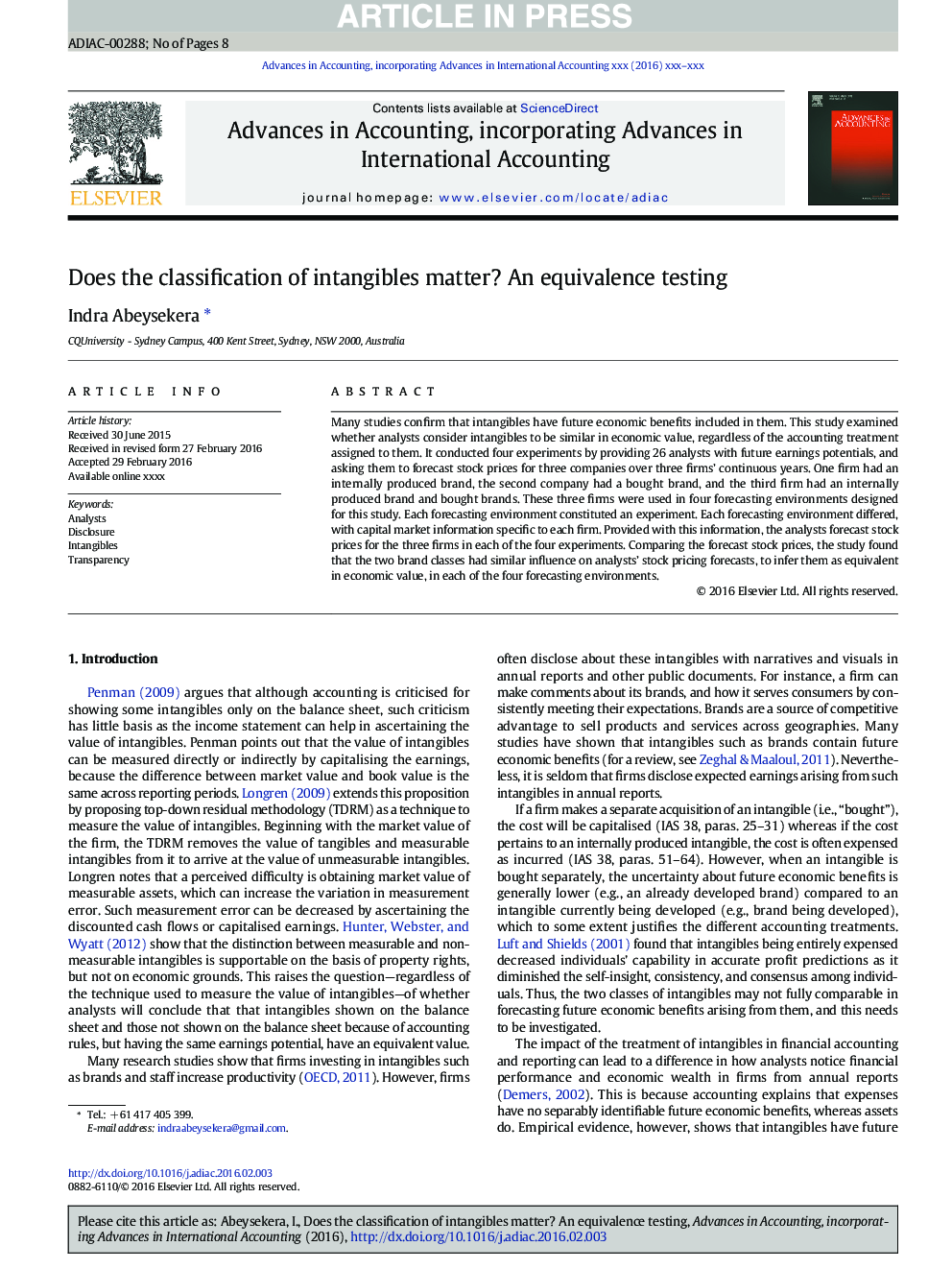| Article ID | Journal | Published Year | Pages | File Type |
|---|---|---|---|---|
| 7339954 | Advances in Accounting | 2016 | 8 Pages |
Abstract
Many studies confirm that intangibles have future economic benefits included in them. This study examined whether analysts consider intangibles to be similar in economic value, regardless of the accounting treatment assigned to them. It conducted four experiments by providing 26 analysts with future earnings potentials, and asking them to forecast stock prices for three companies over three firms' continuous years. One firm had an internally produced brand, the second company had a bought brand, and the third firm had an internally produced brand and bought brands. These three firms were used in four forecasting environments designed for this study. Each forecasting environment constituted an experiment. Each forecasting environment differed, with capital market information specific to each firm. Provided with this information, the analysts forecast stock prices for the three firms in each of the four experiments. Comparing the forecast stock prices, the study found that the two brand classes had similar influence on analysts' stock pricing forecasts, to infer them as equivalent in economic value, in each of the four forecasting environments.
Related Topics
Social Sciences and Humanities
Business, Management and Accounting
Accounting
Authors
Indra Abeysekera,
